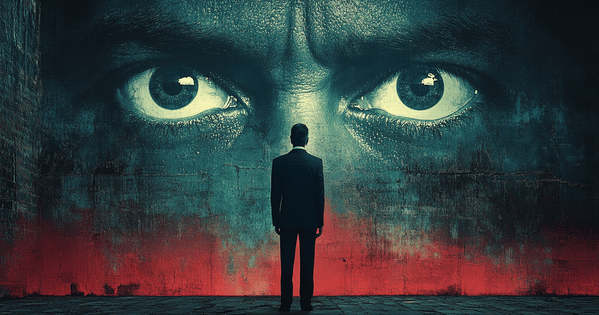

The sides share the understanding that democracy is a universal human value, rather than a privilege of a limited number of states, and that its promotion and protection is a common responsibility of the entire world community.
— Joint statement of the Russian Federation and the People's Republic of China,
February 4, 2022 [1] [2]
This statement, issued by the PRC and by Russia just weeks before the latter’s full-scale invasion of Ukraine, exemplifies a modern paradox: the world’s most repressive regimes invoking the language of democracy while systematically undermining its principles. The word "democracy" appears 12 times in that joint declaration. Behind its repetition lies not a shared commitment to liberty, pluralism, and human rights—but a strategic appropriation of democratic rhetoric to legitimize undemocratic power.
The same contradiction is increasingly visible worldwide. Authoritarian leaders claim the mantle of democracy while suppressing dissent, controlling media, manipulating elections, and consolidating personal power. This preface explores how democracy can be hijacked—both by powerful regimes and by everyday citizens who unwittingly drift toward authoritarian habits.
Modern autocracies have become adept at using the vocabulary of democracy to mask repression. Elections are held—but only with pre-selected candidates and predetermined outcomes. Constitutions promise freedoms that are never upheld. Propaganda channels mimic free media, saturating populations with state-approved narratives.
China describes its system as a "whole-process people’s democracy." Russia claims to defend “traditional values” under democratic norms. Yet these are facades. The democratic lexicon is co-opted to manufacture legitimacy both at home and abroad.
Populist leaders and autocrats frequently frame themselves as defenders of free speech, even as they use that defense to promote lies and disinformation. In the United States, supporters of Donald Trump claimed First Amendment protections while propagating election falsehoods that culminated in the January 6 insurrection.
Elsewhere, similar dynamics play out. Authoritarian populists equate criticism with censorship and equate opposition with treason. The result is a twisted moral equivalence in which disinformation is protected under the banner of democratic pluralism, while truth becomes negotiable.
Many populist leaders reject the idea that democracy is a set of institutions, procedures, and rights for all. Instead, they portray democracy as their exclusive representation of “the people.” In doing so, they discard checks and balances, judicial independence, and media freedom as obstacles to the will of the majority—or more precisely, to their own rule.
Viktor Orbán in Hungary, Jair Bolsonaro in Brazil, and Recep Tayyip Erdoğan in Turkey have all leveraged democratic elections to install increasingly autocratic regimes. In this form of government, elections become coronations, and dissent becomes betrayal.
As Western democracies falter under the weight of inequality, polarization, and institutional distrust, autocratic regimes seize the opportunity to question the very legitimacy of liberal democracy. They promote alternative models based on “stability,” “sovereignty,” or “tradition,” asserting that democracy is culturally relative.
This criticism is sometimes bolstered by valid grievances: U.S. voter suppression, surveillance overreach, and persistent racial injustice give ammunition to critics abroad. When democratic nations fail to live up to their ideals, they weaken the moral force of democracy itself.
Democracy doesn’t collapse only through coups or invasions. Often, it unravels slowly—from within. While apathy, cynicism, or passive complicity play a role, a deeper danger lies in the subtle ways we exercise authoritarian tendencies ourselves. These aren't just passive failures—they can be active impulses. The autocrat in us reveals itself when we shame dissenting voices, demand obedience from those we disagree with, or elevate leaders who promise domination over dialogue. When we embrace zero-sum thinking, dehumanize our opponents, or choose control over compromise, we become carriers of the same mindset we condemn. The struggle for democracy is not only against external tyrants—but against the seduction of power, fear, and certainty within our own hearts.
Democracy is sustained not only by institutions but by everyday behavior. When citizens engage in dialogue, seek mutual understanding, and act in good faith, democracy thrives. When they interrupt, insult, manipulate, and prioritize winning over truth, democratic culture erodes.
Civic character—humility, empathy, integrity—is the invisible infrastructure of freedom.
Authoritarianism often speaks in logical fallacies. Straw man arguments distort real opposition. Ad hominem attacks replace engagement. False equivalences undermine moral clarity. Whataboutism deflects accountability.
These rhetorical habits, amplified by social media and partisan media ecosystems, dull our ability to think critically, listen openly, and make informed decisions. They hollow out the intellectual space democracy requires.
What kind of democracy emerges from a nation of saints? And what from a nation of cynics? Institutions reflect the moral character of those who build and inhabit them. A corrupt people will not sustain a just democracy.
Democracy requires ethical commitment, not just formal procedure. In this sense, the health of a democracy is inseparable from the habits and virtues of its citizens.
“Democracy” has become a contested symbol—a word that can mean anything or nothing. If everyone claims to represent it, then who truly defends it? Before we can improve our democracies, we must reclaim its meaning.
This series begins with this premise: that democracy is more than a form of government. It is a moral and social contract—an evolving practice built on mutual dignity, critical thinking, and collective responsibility.
To defend democracy, we must not only oppose tyrants abroad. We must confront the autocrat within.
Authoritarian leaders are using the language of democracy in an attempt to conceal the abusive systems through which they cling to power.
Today, the world’s illiberal leaders are developing ever-more sophisticated ways to spread poisoned messages beyond territorial borders. In this environment, the ability to recognize and explain the difference between hollow “democratic” rhetoric and the tenets of a truly democratic system is fundamental to countering authoritarian abuses, and promoting democratic systems where leaders are accountable to voters and fundamental rights and freedoms are upheld.
0: Dangers — Threats to democracy and social justice in all their forms.